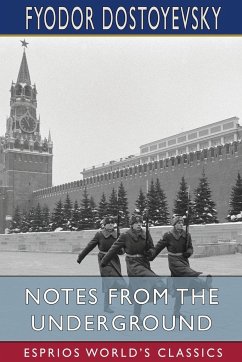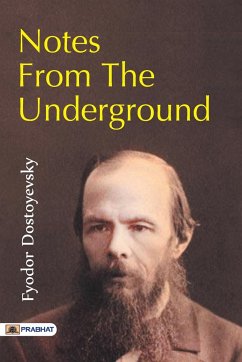
Notes from the Underground
Versandkostenfrei!
Versandfertig in 1-2 Wochen
15,99 €
inkl. MwSt.

PAYBACK Punkte
8 °P sammeln!
"Long live the underground!" ¿ Fyodor Dostoyevsky, Notes from the Underground Notes from the Underground (1864) by Fyodor Dostoevsky renders the story of a man who is disenchanted with society and has withdrawn into an underground existence. The unnamed narrator explains his views through a series of journal notes and fragments of his diary. The book is split into two parts. The first part is a diary kept by him describing his life which highlights his views on the world and his hatred for it. The second part contains his interactions with various people which subsequently led to his nihilist...
"Long live the underground!" ¿ Fyodor Dostoyevsky, Notes from the Underground Notes from the Underground (1864) by Fyodor Dostoevsky renders the story of a man who is disenchanted with society and has withdrawn into an underground existence. The unnamed narrator explains his views through a series of journal notes and fragments of his diary. The book is split into two parts. The first part is a diary kept by him describing his life which highlights his views on the world and his hatred for it. The second part contains his interactions with various people which subsequently led to his nihilistic philosophy about life.












